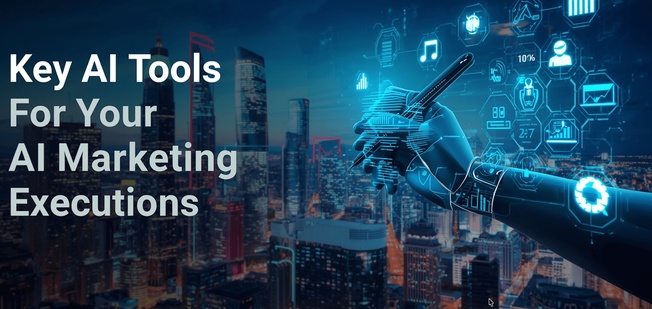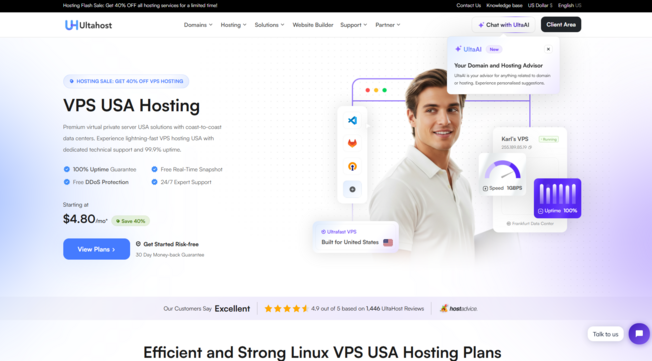
AI is already at work... you just might not realize it
Companies are pouring money into artificial intelligence faster than ever. But here's what's interesting: there's a huge gap between what businesses think they're doing with AI and what's actually happening on the ground. Most leaders have no clue about the real story.
The AI tools you're probably already using
AI has snuck into workplaces way more than most companies realize. A recent study found that three-quarters of non-manual workers are using AI for various work tasks, often without their employers' knowledge or permission [6]. Think about that for a moment - people are quietly changing how they work.
Here's where it gets really interesting. 93% of Fortune 500 Chief Human Resource Officers say their organizations have started rolling out AI tools. But only 33% of all employees agree [15]. That's a massive disconnect right there.
What's happening is that employees are becoming what researchers call "secret cyborgs." They're using AI to get better results and work faster, but they're keeping quiet about it [6]. Nearly half of employees admit they're hiding their AI use at work [1].
The most common AI tools sneaking into workflows? Knowledge management systems like Notion AI and Microsoft Copilot, project management platforms like Asana and Zapier, and communication tools with AI features baked in [4]. Surprisingly, only about 10% of employees report using AI chatbots at work on a regular basis [16].
Why people don't realize they're using AI
There are a few reasons why AI use gets so underestimated. First off, many employees simply don't know when they're using AI-powered tools. Modern software often has AI capabilities built right in, but it doesn't wave a big flag saying "Hey, this is AI!"
Then there's the confusion factor. A staggering 77% of employees say they feel lost about how to use AI effectively in their jobs [17]. When you don't understand something, you tend to underestimate how much you're actually using it.
Fear plays a big part too. One in seven employees actively avoid telling their managers about their AI use [1]. They worry about being seen as lazy or breaking some unspoken rule. This whole culture of secrecy means companies can't figure out how AI is actually being used or what works best.
The rules around AI use don't help either. Only one in three employees think AI use in their workplace is properly managed. About 10% describe their workplace AI situation as "the Wild West" - no rules whatsoever [1].
The work nobody talks about
Here's something most people miss: AI is quietly changing what jobs actually involve. Employees are doing more of what researchers call "repair work" - all the behind-the-scenes effort needed to make AI actually work in real situations [18]. We're talking about preparing data, checking AI outputs, and figuring out how to fit AI results into existing workflows.
One researcher put it perfectly: "So much of the actual day-to-day work that is required to make AI function in the world is rendered invisible, and then undervalued" [18]. This hidden work is changing how people spend their time, but you won't see it mentioned in job descriptions or performance reviews.
The impact is already showing up in some industries. Employment in technology sectors like cloud services, web search, and computer systems design stopped growing at the end of 2022 - right after ChatGPT launched [19]. These are exactly the areas where AI can handle big chunks of the work.
For employees, this means learning to focus less on routine tasks and more on working with AI - checking its work, adding context, and making sure everything fits together properly. The people who figure this out often keep quiet about their AI use, which means most organizations have no idea how work is really getting done these days.
The Good News About AI at Work
You've probably heard plenty about AI taking jobs away. But here's what most of those headlines miss... there's actually some pretty exciting stuff happening that nobody talks about.
AI Makes You Better at Your Job
Let's talk numbers for a second. When people use AI tools properly, they can boost a highly skilled worker's performance by nearly 40% compared to those who don't use it [2]. That's not just in tech companies either - this works across different industries and job types.
Here's something that caught my attention: employees using generative AI save about 5.4% of their work hours—that's roughly 2.2 hours in a normal 40-hour week [2]. Even better? Workers are 33% more productive during each hour they actually use AI tools [2].
The future looks even more interesting. Experts think that by 2035, automation will handle more than 20% of work across all U.S. jobs. That's basically like getting one full day back every week [20]. Now, this doesn't mean we'll all be working four-day weeks (wouldn't that be nice though?), but it does mean we can get more done with less effort. Economists are saying this productivity boost could push GDP growth to nearly 3% during the 2030s—the fastest we've seen since the late 1990s [20].
AI Creates Jobs Too
Here's where it gets really interesting. Instead of just wiping out jobs, AI is actually creating new ones. The World Economic Forum did some research and found that while AI might displace 92 million jobs by 2030, it'll create 170 million new positions at the same time—that's a net gain of 78 million jobs worldwide [8].
This isn't just future talk either. Right now, 54% of CEOs say they're hiring for AI-related roles that didn't even exist a year ago [8]. Some of these new jobs include:
- Prompt Engineers who figure out the right way to talk to AI tools
- AI Ethics Officers who make sure everything stays fair and above board
- AI-Assisted Healthcare Technicians helping with diagnoses and treatment plans
- AI Maintenance Specialists keeping those smart machines running in factories [9]
CLICK HERE to read the remainder of the article

















Leave a Reply